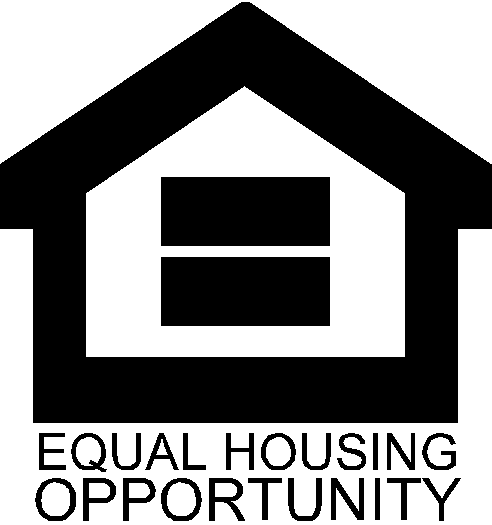Unlocking Opportunities: Exploring No Income Verification Mortgages for Home Financing
What is a No Income Verification Mortgage?
A no income verification mortgage is a type of home loan where borrowers are not required to provide traditional proof of income during the application process. Unlike conventional mortgages that typically require income verification through pay stubs, tax returns, or W-2 forms, a no income verification mortgage allows borrowers to state their income on the loan application without providing supporting documentation.
This type of mortgage is often sought by self-employed individuals, freelancers, and those with non-traditional sources of income who may have difficulty documenting their earnings through traditional means. No income verification mortgages are designed to simplify the application process and provide an alternative financing option for borrowers who have strong credit histories but lack the conventional income documentation.
It's important to note that no income verification mortgages may come with higher interest rates and require a larger down payment compared to traditional mortgages. This is because lenders perceive a higher risk in extending loans without comprehensive income verification. These mortgages are subject to specific eligibility criteria, and borrowers must have good credit scores and substantial assets to qualify.
Due to the 2008 financial crisis and subsequent regulations, the availability of no income verification mortgages has become limited compared to the pre-crisis era. However, there are still some lenders who offer this type of mortgage.
It is crucial for borrowers considering a no income verification mortgage to carefully evaluate their financial situation and consult with mortgage professionals to determine if this type of loan is suitable for their specific needs and circumstances.
Is a No Income Verification Mortgage Right for You?
Call us 888-958-5382
www.MORTGAGE-WORLD.com LLC is an online mortgage company specializing in FHA loans for first time home buyers.
Choosing a no income verification mortgage can be an option for individuals who have difficulty providing traditional proof of income but have other assets or financial strengths. Here are a few reasons why someone might opt for a no income verification mortgage:
- Self-Employment or Irregular Income: If you are self-employed or have income from freelance work or contract jobs, it can be challenging to document your income through traditional means. A no income verification mortgage allows you to state your income without the need for extensive documentation, making it a potential solution for those with irregular income streams.
- Simplified Application Process: Traditional mortgage applications often require gathering and providing extensive documentation, such as pay stubs, tax returns, and W-2 forms. With a no income verification mortgage, the application process is streamlined since you are not required to submit these documents. This can save time and effort during the application process.
- Privacy Concerns: Some individuals may value their financial privacy and prefer not to disclose detailed income information. Opting for a no income verification mortgage allows borrowers to maintain a certain level of privacy, as they do not need to disclose specific income details.
- Faster Approval: The absence of income verification requirements can expedite the approval process for a mortgage. Without the need to verify income, lenders can often evaluate applications more quickly, potentially resulting in a faster loan approval and closing process.
What are the Requirements for a No Income Verification Mortgage in Florida?
While specific requirements for a no income verification mortgage can vary among lenders, here are some common factors that lenders may consider when evaluating borrowers for this type of loan:
- Credit Score: Lenders typically place a significant emphasis on creditworthiness for no income verification mortgages. A higher credit score demonstrates a borrower's history of responsible financial management and may increase the chances of approval. Generally, a minimum credit score of around 620 or higher is required, although some lenders may have stricter requirements.
- Down Payment: No income verification mortgages often require a larger down payment compared to traditional mortgages. Lenders may require borrowers to provide a substantial upfront payment, usually ranging from 20% to 35% of the home's purchase price. The larger down payment helps offset the increased risk associated with these loans.
- Asset Verification: While income verification is not required, lenders may request documentation regarding your assets to assess your financial stability. This may include bank statements, investment account statements, or other proof of substantial assets that can demonstrate your ability to handle mortgage payments.
- Employment History: Although income is not officially verified, lenders may still consider your employment history. Demonstrating a stable employment track record can help support your ability to repay the loan. Lenders may verify employment through alternative means, such as contacting employers directly or requesting reference letters.
- Debt-to-Income Ratio: While income documentation is not required, lenders still evaluate your debt-to-income ratio (DTI). This ratio compares your monthly debt payments to your income. Lenders typically prefer a lower DTI as it indicates a lower risk of default. A DTI of 43% or lower is often required, but some lenders may have different thresholds.
- Reserves: Lenders may require borrowers to have a certain amount of cash reserves or savings. Reserves act as a safety net, ensuring that you can handle unexpected expenses or financial challenges. The specific amount required can vary but is typically several months' worth of mortgage payments.
It's important to note that the availability and specific requirements for no income verification mortgages can vary among lenders, and these types of loans have become less common due to increased regulatory scrutiny. Working with Mortgage World can help you navigate the requirements and find lenders who specialize in no income verification mortgages.

What is the Application Process for a No Income Verification Mortgage in Florida?
The application process for a no income verification mortgage may vary slightly depending on the lender and specific loan program. However, here is a general outline of the steps involved:
- Research and Preparing Documentation: Start by researching lenders that offer no income verification mortgages and comparing their requirements, interest rates, and terms. Prepare other supporting documentation that lenders may request, such as bank statements, investment account statements, or proof of substantial assets.
- Prequalification: Contact the lender or apply online to begin the prequalification process. Provide basic information about yourself, the property you intend to purchase or refinance, and any other details the lender requests. The lender will assess your creditworthiness and give you an initial indication of the loan amount you may qualify for.
- Submitting the Application: Once you have chosen a lender, complete the formal loan application. Provide accurate information about your personal details, employment history, and assets. Since income verification is not required, you will not need to provide income-related documentation like tax returns or pay stubs.
- Credit Check and Documentation Review: The lender will perform a credit check to assess your creditworthiness. They may also review the other supporting documents you provided, such as bank statements or asset statements, to verify your financial stability.
- Appraisal and Property Evaluation: The lender will order an appraisal of the property to determine its value. This is necessary to ensure that the loan amount aligns with the property's worth. The appraisal is typically conducted by a licensed appraiser.
- Underwriting: The lender's underwriting department will review your application, credit history, supporting documents, and property appraisal to assess the loan's risk. They will evaluate your overall financial situation and determine whether you meet their specific lending criteria.
- Loan Approval and Closing: If your application is approved, the lender will issue a loan commitment outlining the terms and conditions of the mortgage. Review the commitment carefully and address any outstanding conditions. Once all conditions are met, the closing process can proceed, which involves signing the loan documents and transferring ownership of the property.
It's important to note that the availability and specific processes for no income verification mortgages can vary among lenders. Be prepared for potential delays and provide prompt responses to any additional information or documentation requested by the lender. Working with Mortgage-World can help guide you through the application process and ensure that you meet the necessary requirements.

Call us 800.516.9166
www.MORTGAGE-WORLD.com LLC is an online mortgage company specializing in FHA loans for first time home buyers.
We look forward to working with you.



Recent Articles
-
Mortgage Rates August 5
Aug 05, 24 04:10 PM
Mortgage Rates August 5, 2024. Rates have gone down recently. Lower rates equals lower mortgage payment. -
Mortgage Rates August 5 2024
Aug 05, 24 03:55 PM
Mortgage Rates August 5 2024 -
Today's FHA Rates 5.00% & 5.875% Conventional Minimum 700 Credit Score
Aug 05, 24 03:48 PM
Today’s historically low 30 year fixed interest rates make now the perfect time to purchase a new home or refinance To be approved at the lowest mortgage rates, you do not need to have the highest cre…
Recent Articles
-
Mortgage Rates August 5
Aug 05, 24 04:10 PM
Mortgage Rates August 5, 2024. Rates have gone down recently. Lower rates equals lower mortgage payment. -
Mortgage Rates August 5 2024
Aug 05, 24 03:55 PM
Mortgage Rates August 5 2024 -
Today's FHA Rates 5.00% & 5.875% Conventional Minimum 700 Credit Score
Aug 05, 24 03:48 PM
Today’s historically low 30 year fixed interest rates make now the perfect time to purchase a new home or refinance To be approved at the lowest mortgage rates, you do not need to have the highest cre…

Call Now, Our Staff is Available!
800.516.9166

Call Now, Our Staff is Available!
800.516.9166
